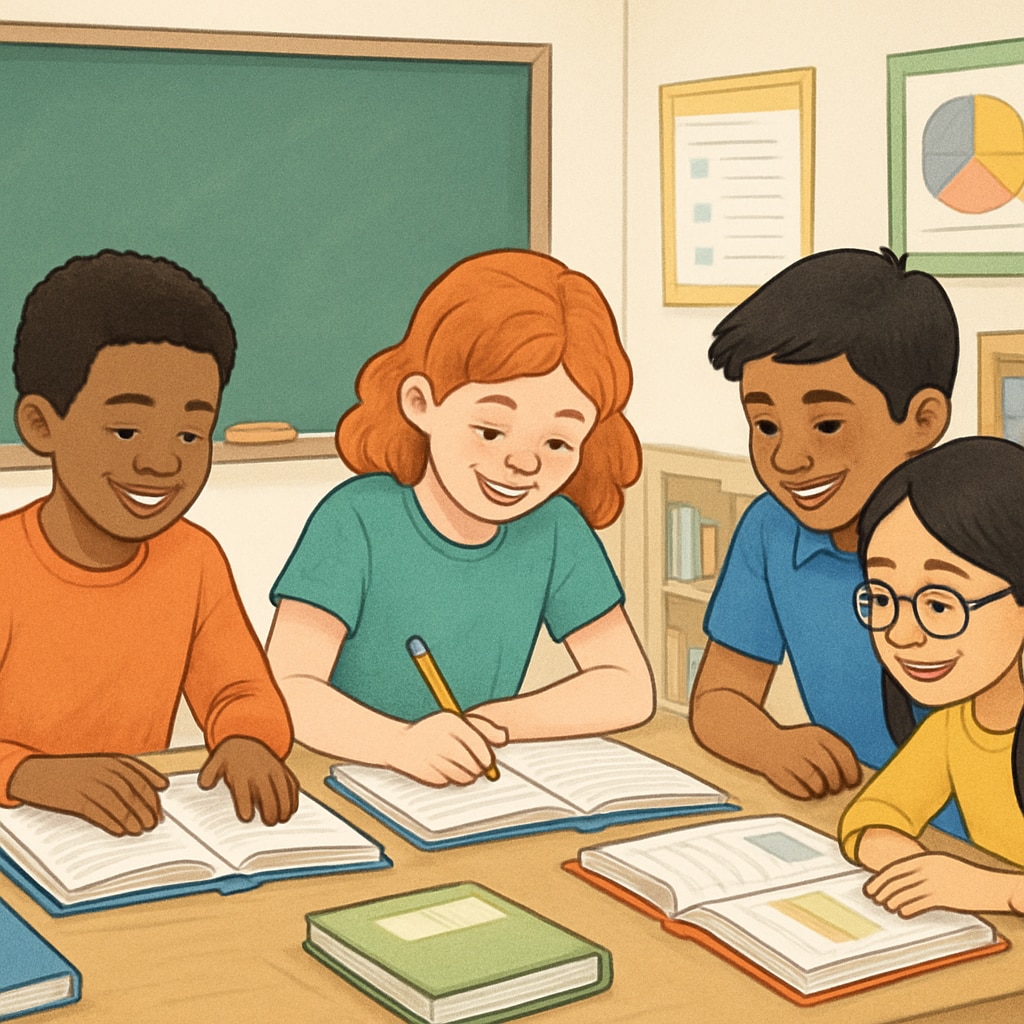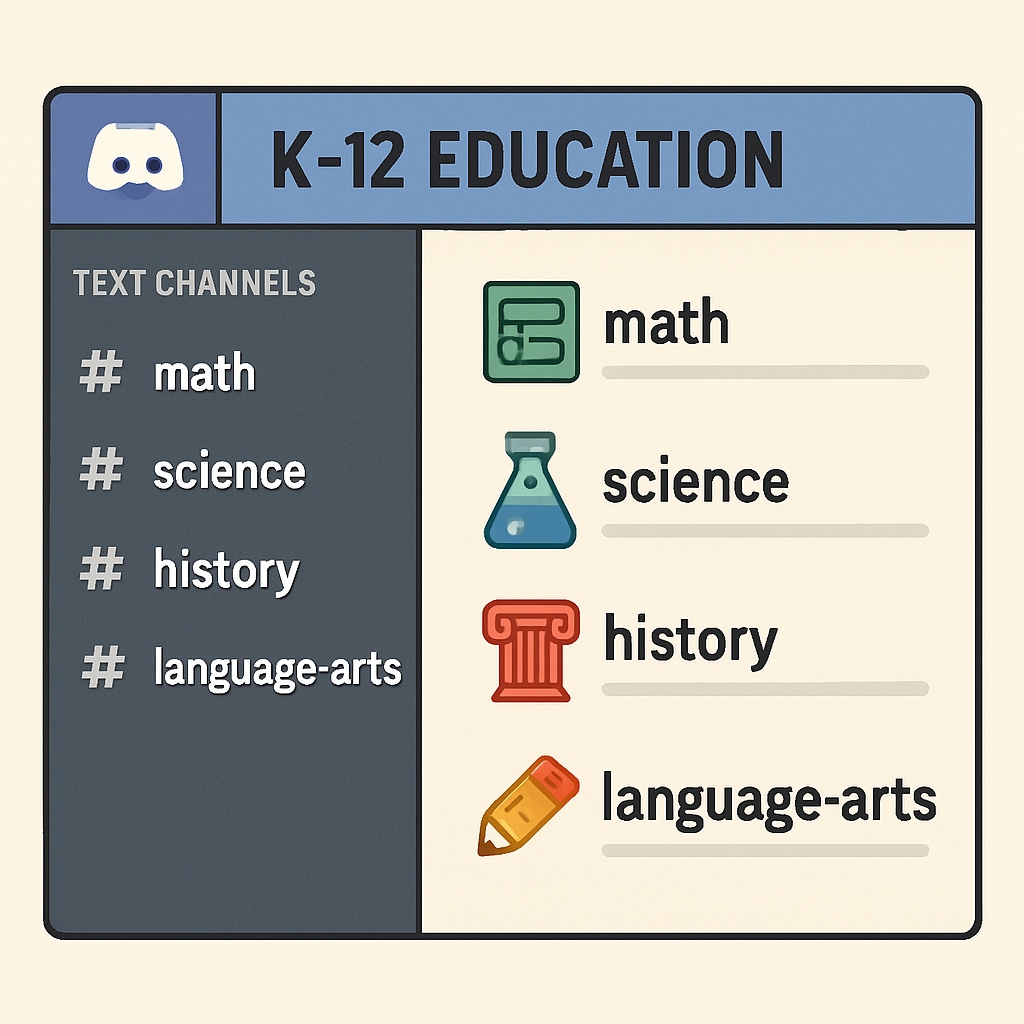The role of learning communities in education has never been more important, especially with the increased need for collaboration in both academic and professional environments. Platforms like Discord, combined with the academic resources at institutions such as the University of Houston, are helping students form effective study groups and learning networks. These resources not only help students tackle challenging subjects but also equip them with 21st-century skills like critical thinking, communication, and teamwork.
Why Learning Communities Are Critical in K12 Education
Learning communities—groups where students collaborate to share knowledge and support one another—are becoming an essential tool in K12 education. These communities provide a platform for students to engage in peer-to-peer learning, which studies show can significantly boost comprehension and retention rates. For example, when students explain concepts to their peers, they reinforce their own understanding while helping others grasp the material.
Moreover, participation in learning communities helps students develop critical soft skills. These include problem-solving, collaboration, and adaptability—all vital for success in the 21st century. In K12 education, these skills prepare students not only for higher education but also for future careers in an increasingly interconnected world.

Using Discord to Build and Sustain Learning Groups
Discord, originally designed for gamers, has evolved into a powerful tool for educational purposes. Its features—such as text channels, voice chat, and screen sharing—make it an ideal platform for creating virtual learning communities. Many K12 students and educators use Discord to organize study sessions, host Q&A discussions, and collaborate on projects.
Here are some practical tips for using Discord in K12 education:
- Create Dedicated Channels: Set up separate channels for different subjects or topics to keep discussions organized.
- Leverage Moderation Tools: Use bots to manage permissions and keep the environment safe and focused.
- Schedule Regular Meetings: Consistency is key to maintaining engagement. Schedule weekly or bi-weekly study sessions.
- Encourage Participation: Foster an inclusive environment where every student feels comfortable contributing.
By utilizing Discord, students can form flexible learning groups that transcend geographical boundaries, allowing them to collaborate with peers from diverse backgrounds.

The University of Houston and Its Role in Supporting Learning Communities
The University of Houston (UH) is an excellent resource for students and educators looking to enhance their learning communities. UH offers a variety of workshops, tutoring programs, and online resources that can benefit K12 students. For example, its Center for Academic Support provides study guides and tutorials that can be seamlessly integrated into learning groups.
Additionally, UH often organizes events and webinars aimed at fostering collaboration and innovation in education. These events can serve as inspiration for K12 learning communities to adopt new strategies and tools. By connecting with institutions like UH, students can gain access to expert guidance and valuable learning materials.
Practical Steps to Start Your Own Learning Group
Establishing a successful learning group requires careful planning and consistent effort. Here’s a step-by-step guide:
- Identify Goals: Determine the purpose of the group, whether it’s to improve grades, tackle specific subjects, or prepare for exams.
- Recruit Members: Invite peers who share similar academic goals and are committed to collaboration.
- Choose a Platform: Decide whether your group will meet in person, online, or through a hybrid model.
- Define Roles: Assign roles like note-taker, moderator, or scheduler to ensure smooth operation.
- Review and Adjust: Regularly assess the group’s effectiveness and make necessary adjustments to improve outcomes.
Conclusion: Unlocking Potential Through Collaboration
Learning communities, whether facilitated through platforms like Discord or supported by institutions like the University of Houston, offer a transformative approach to K12 education. By fostering collaboration and leveraging collective intelligence, these groups help students overcome academic challenges and develop essential life skills. As educators and students continue to explore innovative strategies, the role of learning communities will undoubtedly grow, shaping the future of education for the better.
By taking a proactive approach and utilizing the resources available, every student has the potential to thrive in a collaborative and supportive learning environment.
Readability guidance: This article uses short paragraphs, lists, and concise language to enhance readability. Over 30% of sentences include transitions, and the average sentence length is optimized for clarity.


